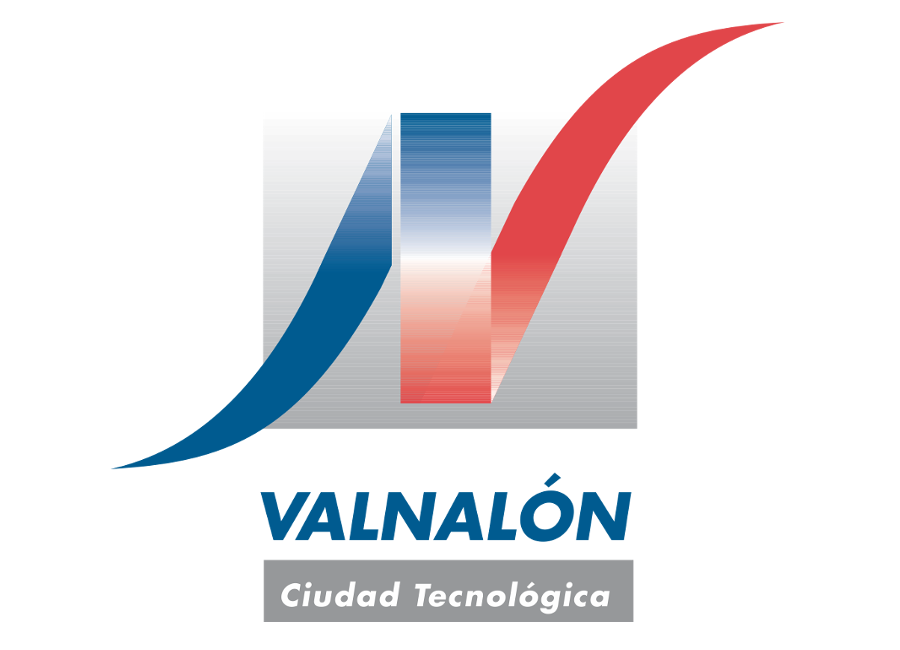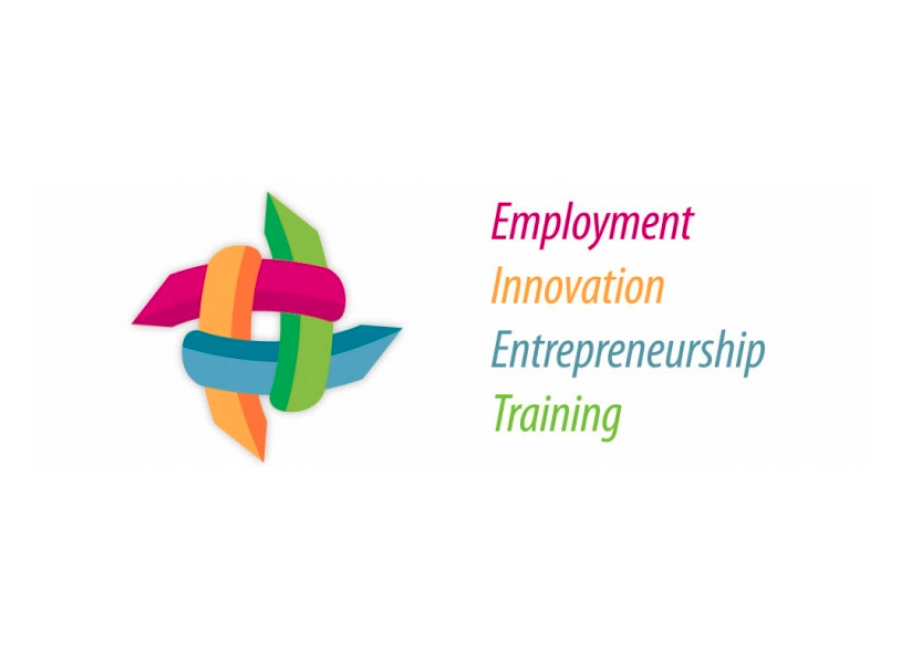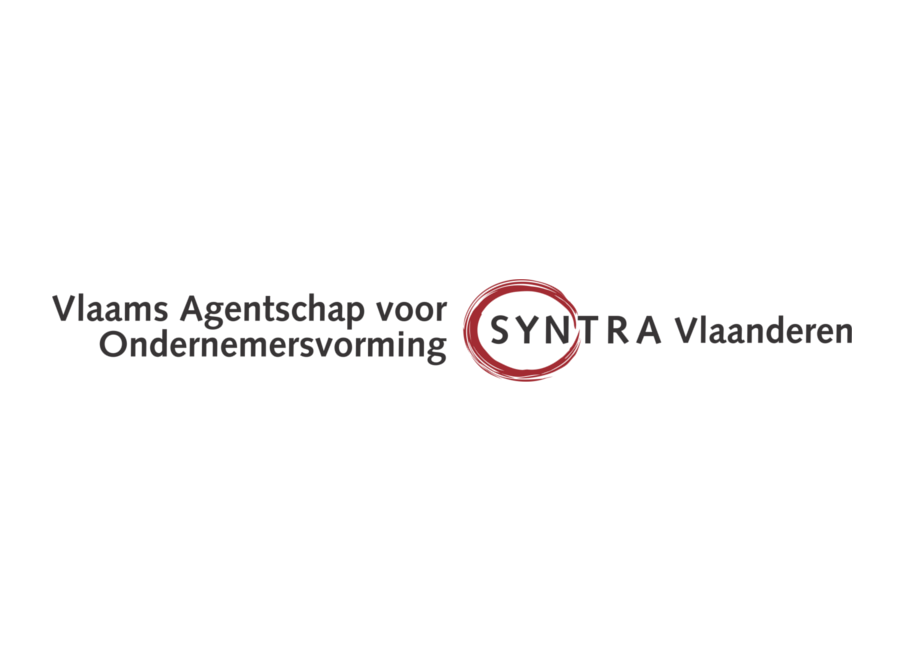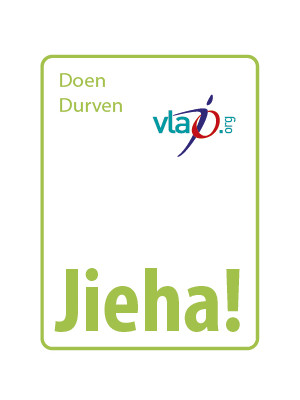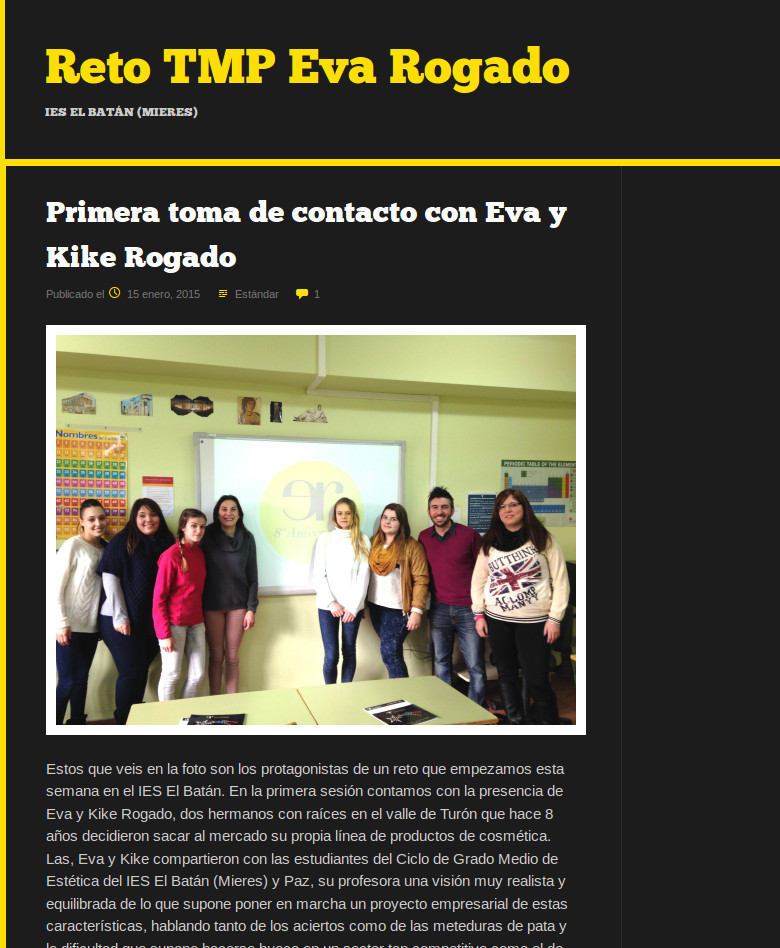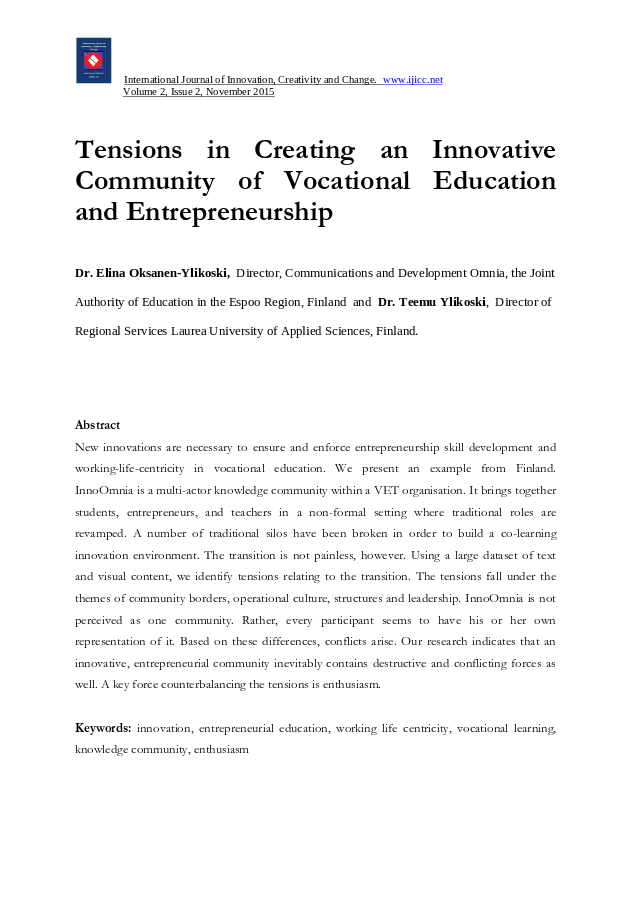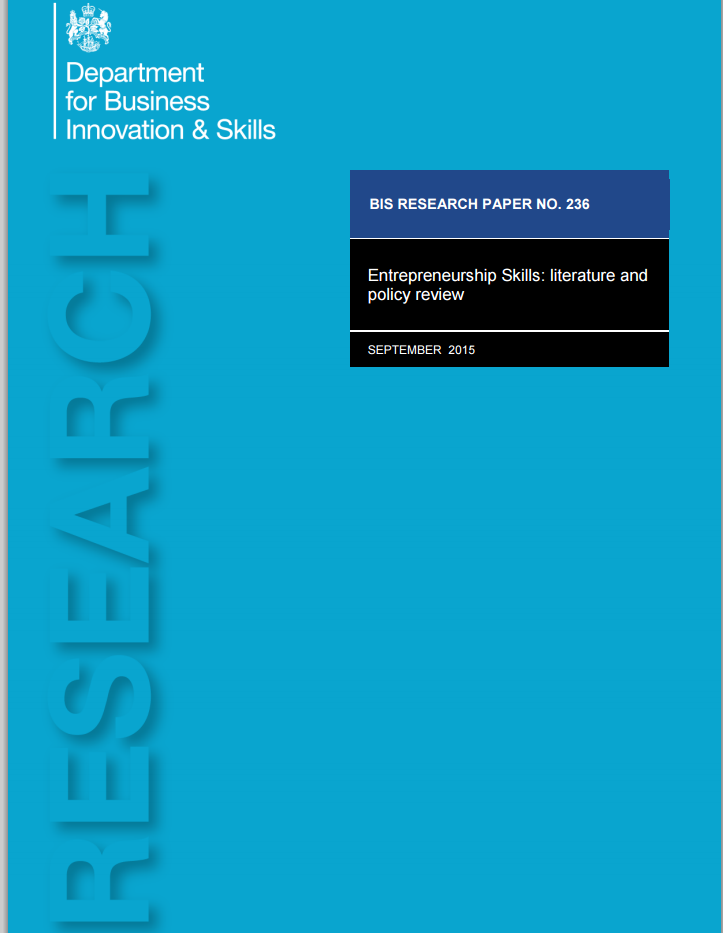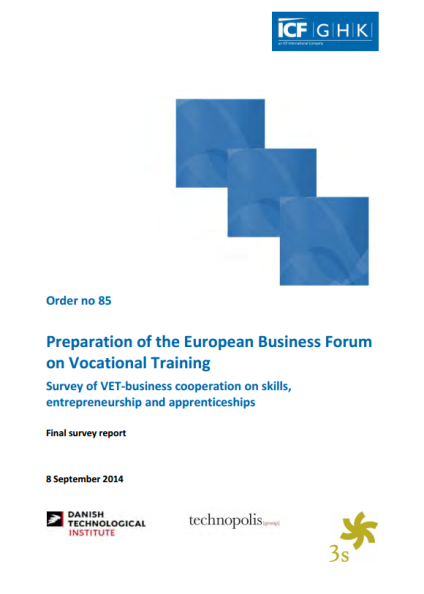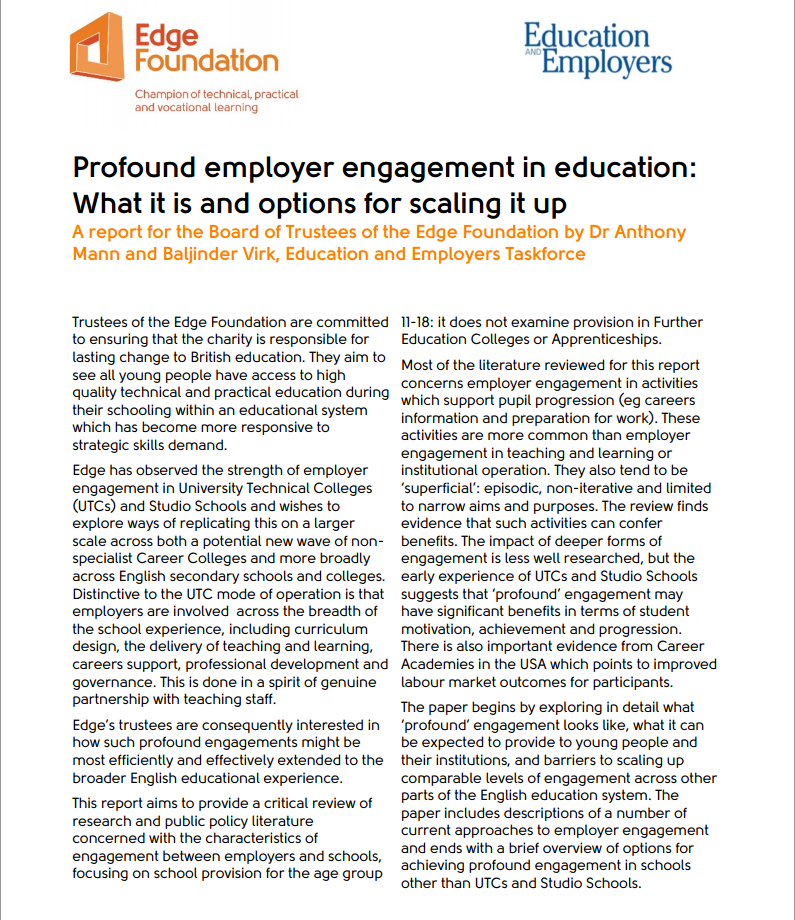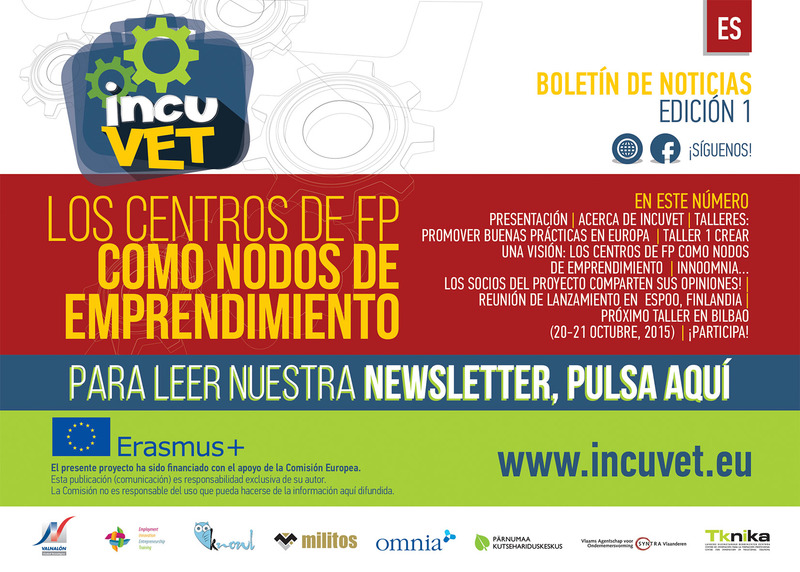IncuVET es un proyecto financiado por la Unión Europea que pretende apoyar y promover la función de los centros de FP como nodos de emprendimiento a nivel local y regional. Estamos convencidos de que más allá del tradicional apoyo a la creación de empresas, los centros de FP están en condiciones de liderar un proceso colaborativo de cambio en el que autoridades locales, empresas, personas emprendedoras, profesorado y estudiantes unan fuerzas para aprender unos de otros y conseguir una mejor integración del fomento del emprendimiento en la Formación Profesional generando un impacto positivo tanto en el centro como en el entorno local.

CAMBIAR MENTALIDADES El proyecto proporciona un lugar de encuentro donde profesorado, personas emprendedoras, empresas, estudiantes, autoridades locales y otras organizaciones participen en un proceso de descubrimiento y debate para crear una nueva visión sobre el papel que el emprendimiento debe jugar en la sociedad y en la educación.
DAR RIENDA SUELTA A NUEVAS IDEAS El proyecto se lleva a cabo con la intención de no dejar ni una sola idea en el tintero prestando especial atención a la creatividad y la sostenibilidad de las mismas. La conexión con el mundo real y la cooperación interdisciplinar e intersectorial serán condiciones indispensables para que estas ideas salgan a la superficie.
CREAR VALOR El proyecto pretende establecer y asegurar las condiciones para que alguna de estas ideas se conviertan en actos bien sea en forma de proyectos empresariales, productos y servicios innovadores, nuevas metodologías, iniciativas sociales, eventos culturales que añadan valor y contribuyan al desarrollo económico, social, cultural y medioambiental del entorno local.
El proyecto IncuVET aspira a lograr una mezcla equilibrada e integrada de estas tres áreas de intervención aprendiendo de iniciativas ya existentes a través de cuatro visitas de estudio en Finlandia, España, Grecia y Bélgica. El intercambio de ideas, experiencias y prácticas se producirá entre los socios del consorcio pero también a través de la colaboración con otras instituciones que contribuyan a seguir ampliando la base de conocimiento sobre el protagonismo de los centros de FP en el fomento de emprendimiento en Europa.
¡COLABORA!
IncuVET está abierto a colaborar y contar con las aportaciones de todos los actores e instituciones implicadas en el desarrollo del emprendimiento en FP:
 ACERCA DEL PROYECTO
ACERCA DEL PROYECTO Socios
Socios